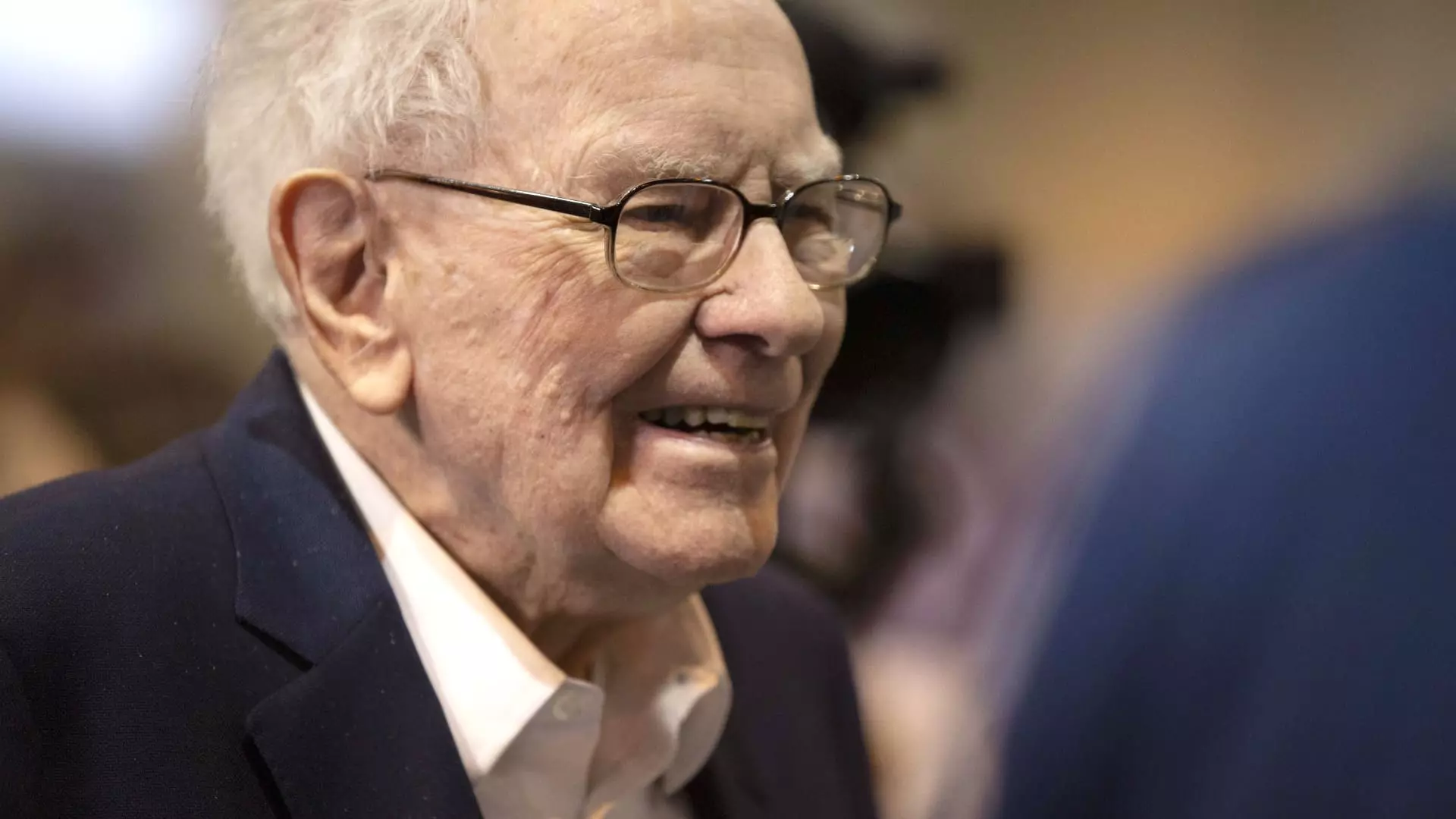Warren Buffett, the legendary investor and CEO of Berkshire Hathaway, has recently stirred both intrigue and concern among shareholders and analysts alike. Despite his renowned reputation for astute equity investments, Buffett’s actions throughout the past quarter have left many questioning the rationale behind his seemingly defensive posture. With Berkshire holding a record cash reserve of $334 billion and divesting over $134 billion worth of stocks, a proclivity for caution now seems to overshadow his traditionally aggressive buying strategies. This article delves into the implications of Buffett’s current approach, the broader economic context, and what this might mean for the future of Berkshire Hathaway.
Buffett’s recent maneuvers highlight a notable shift in the investment landscape. Traditionally characterized by opportunistic stock purchases, Buffett’s decision to bolster cash reserves at a time when equity markets are gaining ground raises eyebrows. In his 2024 annual letter, he reassured shareholders that his passion for equities remains undiminished, stating, “Despite what some commentators currently view as an extraordinary cash position at Berkshire, the great majority of your money remains in equities.” This statement, while affirmative, fails to clarify his rationale for liquidating significant stock positions.
The withdrawal from equity markets is stark; Berkshire Hathaway has net sold stocks for the ninth consecutive quarter, predominantly driven by reductions in its two largest holdings, Apple and Bank of America. A notable contradiction emerges from Buffett’s words versus actions—while he maintains an interest in equities, the tangible reduction in equity exposure sparks questions regarding market valuations and investment opportunities.
Holding vast amounts of liquid assets in a burgeoning bull market may seem counterintuitive, especially as interest rates are forecasted to decline. Nevertheless, Buffett’s sizable cash hoard has been interpreted by various analysts as a shield against perceived overvaluation in the stock market. The conglomerate’s strategic sell-offs, particularly with rapidly rising share prices, signal a possible skepticism regarding future equity performance. Critics might argue that this strategy contradicts Buffett’s historical ethos of seeking out undervalued opportunities in robust markets.
However, Buffett’s reiteration about preferring equities over cash-equivalent assets reflects a sense of long-term confidence in the market’s macroeconomic trajectory. As he explicitly states, “Berkshire will never prefer ownership of cash-equivalent assets over the ownership of good businesses.” Yet, the absence of buybacks and new acquisitions during favorable market conditions makes one wonder whether this stark cash position serves a deeper, more strategic purpose.
Speculation abounds regarding Buffett’s approach as a tactical withdrawal in preparation for a leadership transition to his designated successor, Greg Abel. Since announcing Abel’s ascending role in decisions related to Berkshire’s public portfolio, the observed caution in Buffett’s investments could indicate not merely personal prudence but a deliberate strategy to equip Abel with a robust cash position for future deployment.
Buffett’s participation in drafting a plan for his successor might necessitate an adjustment in his investment approach as he aims to create a seamless transition. This potential redirection could involve liquidating substantial positions in anticipation of enabling Abel to obtain favorable investments once market conditions present themselves.
The backdrop against which Buffett is managing Berkshire indicates underlying economic volatility. With rising concerns surrounding a slowing economy, swiftly shifting monetary policies, and current stock valuations, the timing of his decisions seems aligned with a period of increased uncertainty. S&P 500 has shown signs of resilience with significant gains in previous years; nonetheless, the market’s current trajectory is fraught with challenges that may perforate the surface of bullish sentiment.
Amidst these fluctuations, Buffett’s conservative tilt might ultimately serve as a prudent hedge against unforeseen economic headwinds. As he noted in his letter, “often, nothing looks compelling,” suggesting a reluctance to act without a clear advantage.
Buffett’s defensive approach may perplex investors who expect the oracle of Omaha to seize every opportunity that arises. However, it appears that behind the seemingly perplexing facade lies a strategy influenced by a mix of market caution, evolving economic landscapes, and preparation for generational transitions in leadership. As shareholder patience is tested, the focus should be on understanding not just Buffett’s philosophy on cash versus equity but also the broader implications for Berkshire Hathaway as it navigates an unpredictable future. Ultimately, the lingering question remains: is this a mere waiting game, or are we witnessing a historical shift in one of the most influential investment firms?

